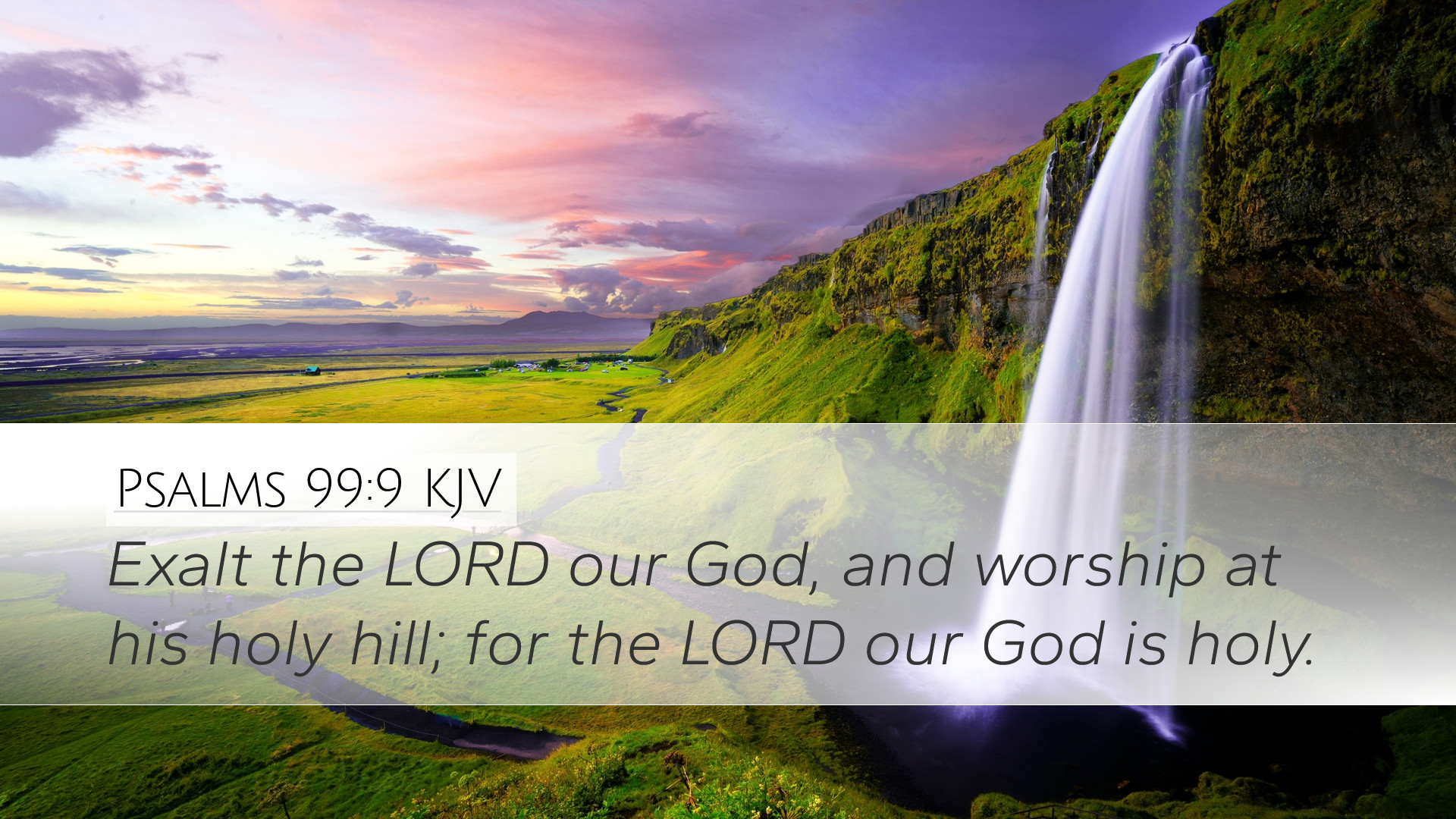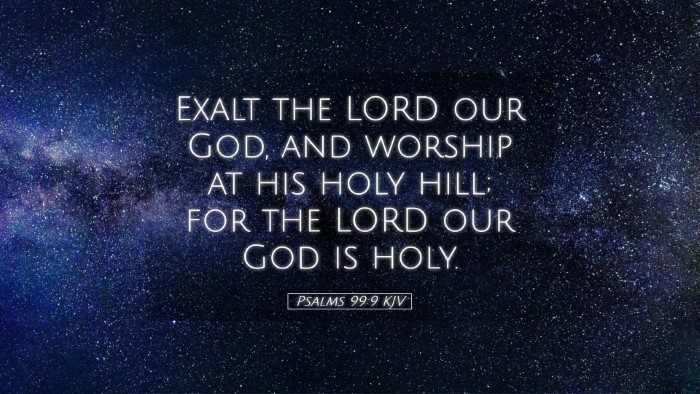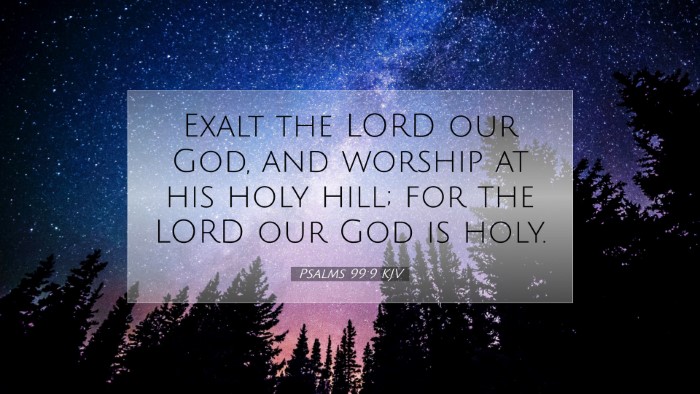Commentary on Psalms 99:9
Bible Verse: "Exalt the LORD our God, and worship at his holy hill; for the LORD our God is holy."
Introduction
The concluding verse of Psalm 99 encapsulates a powerful call to worship, emphasizing the holiness of God and the appropriate response of His people. This verse serves as a fitting climax to the themes presented throughout the Psalm, urging believers to exalt and worship God in the appropriate manner.
Insights from Matthew Henry
Exaltation of God: Matthew Henry emphasizes the importance of exalting God, noting that this is not merely an act of verbal praise but an acknowledgment of His supreme authority and majesty. He refers to the "holy hill" as representative of God’s presence—specifically, the place where He may be sought and worshipped.
The Holiness of God: Henry reinforces that God's holiness is central to understanding His character. He remarks that God's holiness implies His separateness from sin and His utter purity, which should invoke both reverence and love from believers.
Application for Worship: Concerning worship, he points out that true worship must align with the recognition of God's holiness. Thus, worship is not a casual affair but a profound engagement that reflects both adoration and obedience to God's commands.
Insights from Albert Barnes
Call to Worship: Albert Barnes interprets this verse as a direct call to the corporate worship of the community of believers, encouraging a unified response in both praise and reverence. He notes that "exalt" implies an elevation of God's name above all else, recognizing His position as sovereign over all creation.
The Holy Hill: In Barnes' notes, "the holy hill" is interpreted as a metaphor for God's chosen place of divine communion. He references the historical Jerusalem, particularly Mount Zion, as the significant site of God's presence and favor among His people. This emphasizes the importance of place in our worship experience.
Implications of Holiness: Barnes further reflects on the implications of the holiness of God. He describes how the awareness of His holiness ought to transform the hearts of worshippers, leading them to a deeper understanding of their own sinful nature and the necessity for grace and forgiveness.
Insights from Adam Clarke
Importance of Exaltation: Adam Clarke elaborates on the concept of exalting the Lord, suggesting it as an active posture taken by the believer. He indicates that to exalt the Lord is to recognize His greatness through acts and gestures of worship, which may include singing, prayer, and declarations of faith.
Significance of Worship: Clarke emphasizes that worship should be deliberate and heartfelt. He states that when individuals come to worship, they must approach the "holy hill" aware of God's majestic holiness—reflecting a sense of preparedness and seriousness in their worship endeavors.
Holiness and Community: Clarke’s observations also allude to the corporate dimension of holiness. He argues that the sharing of such holy worship helps to unify the community of believers, binding them together in a collective acknowledgment of the Lord’s sovereign rule.
Theological Reflections
This verse is rich in theological significance, encouraging a multi-faceted understanding of worship in both personal and communal contexts. The exhortation to "exalt" signifies a deliberate action requiring both mind and heart, anchoring believers in their devotion and service to God.
The phrase "holy hill" directs attention to the spaces where the sacred intersects with the secular, inviting believers to find God in designated places of worship as well as in their daily lives. This reflection calls for mindfulness of God's presence in all aspects of life.
Conclusion
Psalms 99:9 invites believers to celebrate the holiness of God with reverence and to embark on a spiritual journey that recognizes His supremacy. Through the combined insights of Henry, Barnes, and Clarke, it becomes evident that our understanding and expression of worship must correlate with God's divine nature. It calls pastors, students, theologians, and scholars alike to ponder the implications of God's holiness in their lives and communities.


